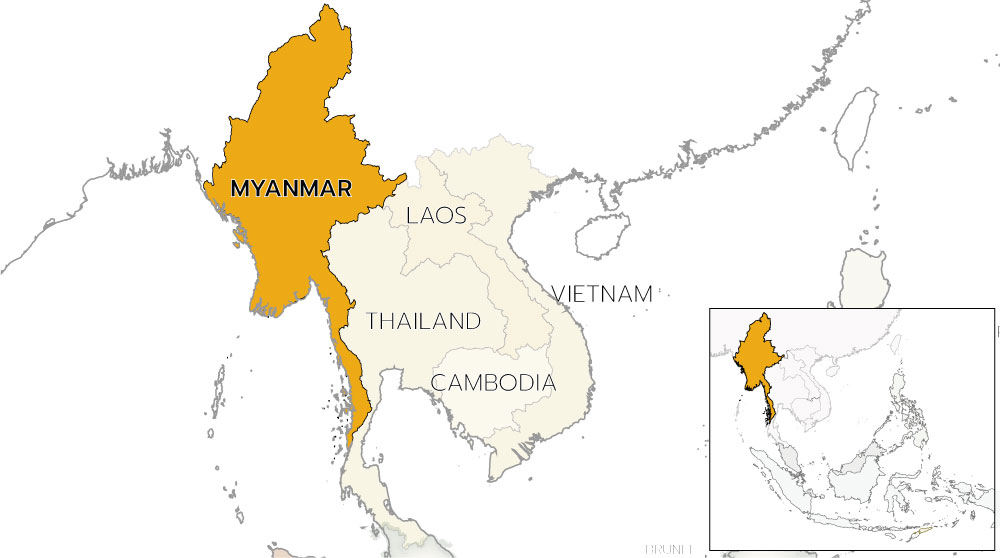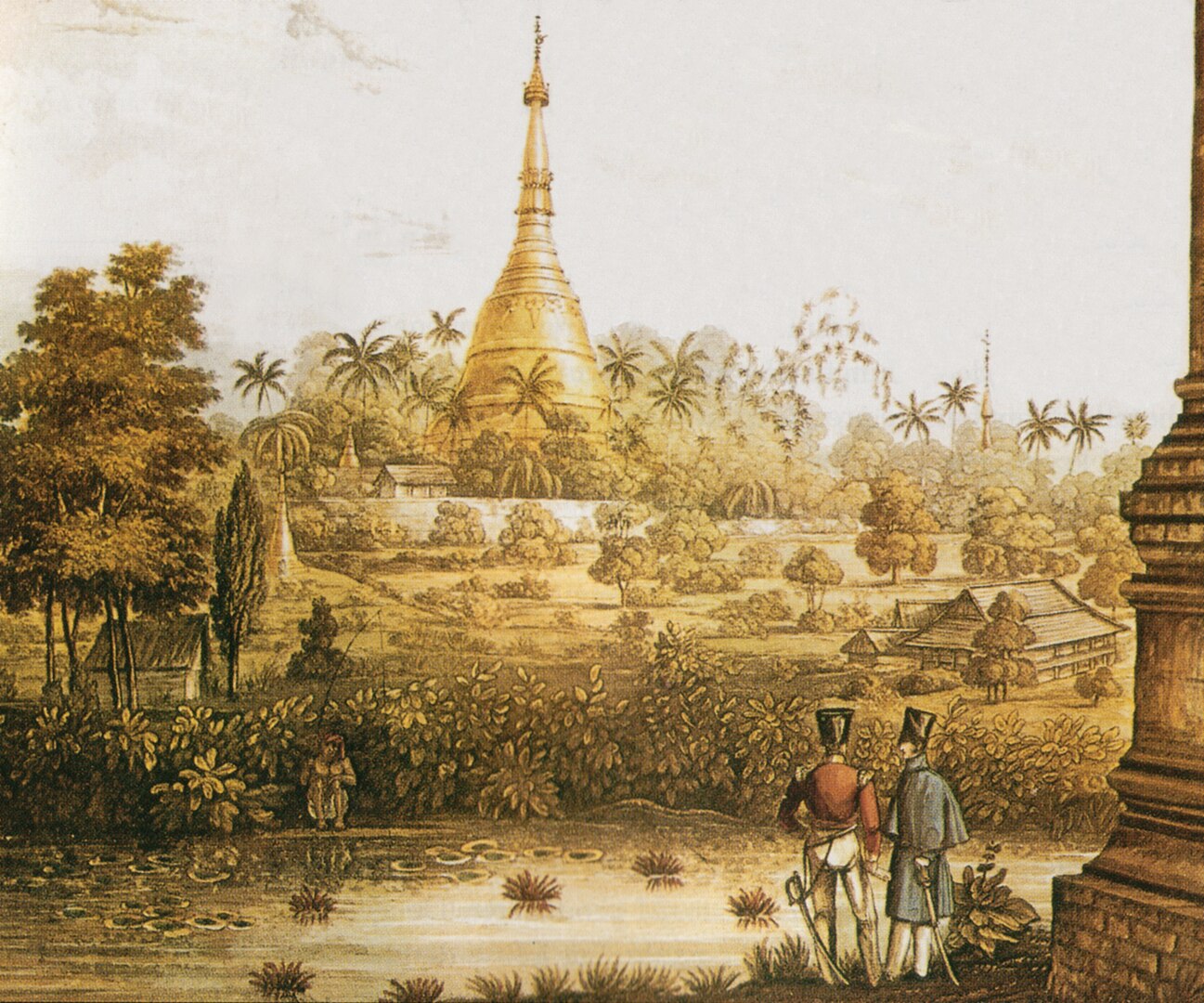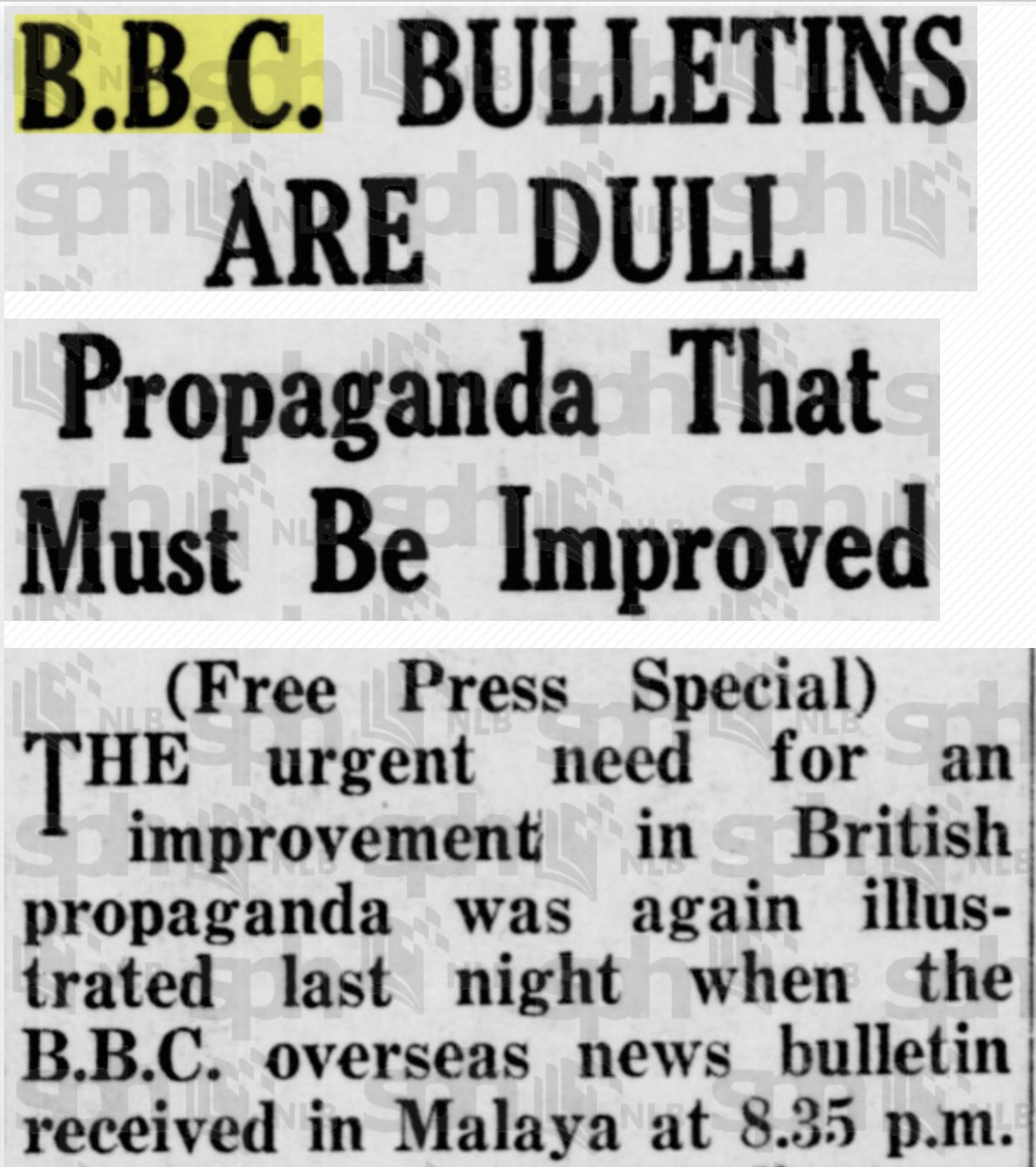Myanmar
- 1937 The first broadcasts in Burma were by the British, who started transmitting programs on a Marconi transmitter which had been used for wireless communication between India and Burma (Taw Daw Shin 1971). The broadcasts could be heard only as far as the Rangoon suburbs.
- 1939 British set up 10-kw. transmitter near Rangoon, at Mingaladon, for propaganda broadcasting in English, Burmese, and Hindustani.
- 1942-45 The Japanese carried out both medium-wave (10-kw.) and short-wave (5-kw.) broadcasting in Burmese, Japanese, English, Hindustani, Bengali, and Chinese.
- 15 February 1946 BBS, known then as the "Voice of Burma" (or Myarma A-Than), was born when the facilities were turned over to the pre-Independence Burmese Civil Government
- August 1948 Burma gains its independence from Britain.


The first broadcasts in Burma were by the British, who in 1937 started transmitting programs on a Marconi transmitter which had been used for wireless communication between India and Burma (Taw Daw Shin 1971). The broadcasts could be heard only as far as the Rangoon suburbs.
In 1939, the British set up 10-kw. transmitter near Rangoon, at Mingaladon, for propaganda broadcasting in English, Burmese, and Hindustani. During the Japanese occupation (1942-45), the Japanese carried out both medium-wave (10-kw.) and short-wave (5-kw.) broadcasting in Burmese, Japanese, English, Hindustani, Bengali, and Chinese.
In the later stages of the war, especially in early 1945, the Burmese resistance movement set up secret "Burmese Revolutionary Army Broadcasting Station" and carried programs in Burmese, English, and Hindustani, especially news and music for the resistance forces. Later in 1945, with the arrival of the Psychological Warfare Team of the returning British Civil Administration for Burma, the British took over the broadcasting operations once more.
These were on two 7.5-kw. and one 5-kw. Marconi transmitters for short-wave and medium-wave broadcasts, respectively, and as before, there were daily transmissions in Burmese, English, and Hindustani. BBS, known then as the "Voice of Burma" (or Myarma A-Than), was born 15 February 1946, when the facilities were turned over to the pre-Independence Burmese Civil Government (Provisional).
Although Burmese broadcasting in the late 1940s was not unlike that of other countries in the region, most others greatly expanded their radio facilities programming efforts and started television stations during the 1950s and 1960s. Meanwhile, Burma remained content with its single Rangoon radio station, its modest level of programming, and its complete isolation from the growing influence of television. This relative non-development has been due not so much to a a lack of technical resources or trained personnel, as to a conscious policy by the Burmese government (GUB) particularly takeover of power by Ne Win's Revolutionary Council in March 1962 apply the bulk of its resources for information activities to other programming, especially the print media.
BBC Audience Reports
An interesting snapshot of how the relayed broadcasts from either Daventry or Singapore is documented in the various Audience panels that the BBC Far Eastern Service would convene. One particularly scathing assessment is from RANGOON dated 1st of July 1 1954 ( BBC Written Archives).
Reactions to London Calling Asia from Rangoon locals.
“I am continually amazed at the miscomprehension of the oriental mind displayed by the BBC” such fatuous programs – all simple minded!"

Read More
Malaysia
Indonesia
Singapore
Myanmar
Hong Kong
Vietnam
Thailand
Cambodia
The Philippines
Brunei
Laos
Timor-Leste
